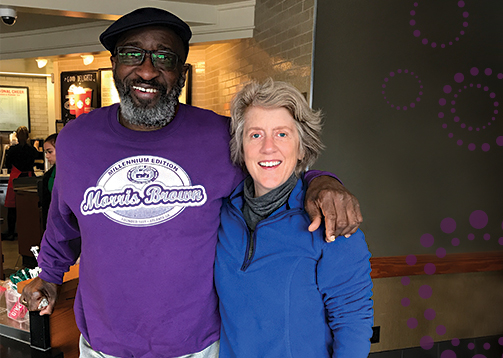February 8, 2018
My Year of Waking Up – Series: Part 1 of 5

PART 1: New Friends, New Learning
Over the last year, I have experienced deep learning about racism, bias, inequity, and myself. I have learned that even though I can authentically say that I believe all people are created equal, and deserve equal protections under the law and an equal opportunity to thrive, my privilege and cultural and historical experiences, as a white woman, make it impossible for me to act in absolute alignment with these beliefs.
I recognize that this realization may be uncomfortable to read. That’s okay, it makes me uncomfortable. In fact, it used to make me feel embarrassed and a bit defensive, but not anymore, because I am starting to wake up.
Over the last year, I have come to realize that this discomfort is key to creating the world I want to live in, but don’t. Not in a blaming, judgmental way, but in a learning, deep listening, and hope-filled way.
I’d like to share my learning with you, as an invitation for conversation, exploration, and possibly a path to change the world, even just a little.
It all started at the gym, when I met Eddie Snead, a high school teacher, who became a Facebook friend and a periodic recumbent cycling pal. Eddie is one of the most positive people I have ever met. He is also a consummate teacher – always urging students, friends, and family to expand their minds by reading more. Eddie urged me to read Bryan Stevenson’s book, Just Mercy, to help me understand the deep impact of structural racism. I felt sick and overwhelmed by the horrific stories of oppression and institutional racism in Just Mercy, but I also felt invited to search for hope, always, by both Bryan Stevenson, the founder of the Equal Justice Initiative, and my new friend, Eddie. I had been one of the people who wondered why not “All Lives Matter”? After reading Just Mercy, I finally got it. Sure, all lives matter, but not all lives experience individual and institutional racism every day. Black Lives Matter is about this prevalent systemic oppression and injustice. It is a necessary message, a necessary movement, aimed at helping all of us wake up more.
My awakening continued when I had the incredible honor of hearing Bryan Stevenson speak in-person at Benaroya Hall. His visit to Seattle came a few weeks after the election, and I will admit, I needed his insight and guidance more than ever. He suggested that to build a just and equitable world for all, we must concentrate on doing the following four things:
- Get proximate to be a witness. He challenged us to get close to those who are broken, those who are oppressed, those who suffer inequity daily, so that we can serve as witnesses to racism, both individual and institutional, in a real way.
- Do things that are uncomfortable. Be willing to get close and listen deeply to those who struggle against systems that are created by our dominant culture. He suggested we must be brave and take risks, we must be willing to get uncomfortable to move to a different place.
- Change the narrative by listening deeply to others. We must stop assuming we understand the challenges our neighbors face, we must stop talking, put our defenses down, and listen deeply to truly understand how people are affected by racism and injustice.
- Have Hope. Knowing that many in the audience were likely feeling unhopeful at the time, he strongly suggested that this was not an option. Believing, that together, we can create the world we want to live in is critical. He did not mince words, saying: “when you become hopeless, you become part of the problem, as hopelessness is the enemy of justice”. We must have hope.
Over the next few weeks, I plan to reflect on each of these actions – and how they have contributed to my year of waking up. I hope you will follow me in this exploration, even if it is uncomfortable, because I think the world we want to live in depends on it.



